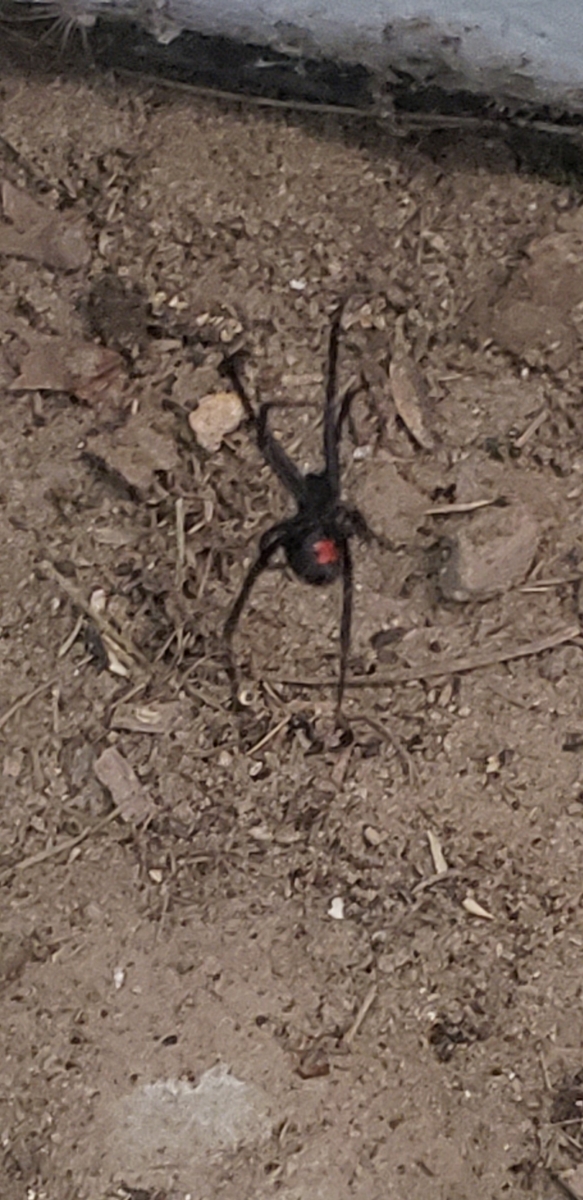10/08/2020
Staying Alert During Fall Yard Cleanup
ENJOY THE OUTDOORS BUT STAY ALERT
With the cooler October temperatures moving in, most people prefer to now move outside for Autumn yard cleanups. Working in the yard shouldn't turn into a painful trip to the nearest medical facility because you've been bitten by a
Black Widow spider (Lactrodectus).
In most cases you may happen upon one and not even notice it until you've reached your hand into it's dark little hiding spot. In fact, these spiders are actually very shy and are not typically aggressive unless accidentally touched. The black widow is common in Maryland but is not often found indoors. These spiders are often found in basement window wells, under patio chairs, decks, porches and in garages, sheds, both wood and rock piles as well as water meters. The black widow female becomes mature in late summer and fall. She is confined to her web and appears clumsy when walking on a flat surface.
APPEARANCE AND DIET
A Black Widow's body is about ½ inch long and nearly all females bear a distinct hourglass-shaped marking on the underside of the abdomen. In most species, the hourglass is bright red or orange, in contrast to its shiny black abdomen. The hourglass may be incomplete, with a break in the middle as the northern black widow (Lactrodectus variolus). No other spider in Maryland looks like the black widow, nor is any as poisonous. This spider is more dangerous to children than adults.
Widow spider nymphs are mostly white when they hatch from the egg sac. As they undergo successive molts, the spiderlings will gradually darken in color, usually with white or beige markings. Female spiderlings take longer to reach maturity than their brothers but eventually turn dark black and red. So that pale little spider you found just might be a widow.
According to National Geographic: Black Widows eat flies, mosquitoes, grasshoppers, beetles and caterpillars. After the prey is entangled in the web, the black widow uses its "comb feet" to wrap the prey in silk. Then, the black widow punctures its prey with its fangs and injects digestive enzymes that liquefy the corpse. The spider then sucks up the fluid. Female spiders can live up to three years. Males typically live for one or two months. The female creates papery egg sacs that contain between 200 and 900 eggs each!
PRIVY ON THE PRIVATES
In the days of old, (way before the invention of indoor plumbing), most black widow bites occurred in outhouses.
Black widows very rarely will be found in homes, but they will very likely inhabit structures like sheds, barns, and outhouses. Lets take outhouses for example - perhaps due to the vast opportunity to catch flies, Black Widows would commonly be found under the seats in such outdoor restrooms. We can surmise from here what one's unanticipated surprise lie ahead.
RARELY FATAL
Although adult black widow bites are usually painful, they are very rarely fatal. Only adult female black widows inflict dangerous bites.
Female widow spiders are larger than males. Nearly all black widow bites which require medical attention are inflicted by the female spiders. Male widow spiders and spiderlings are very rarely cause for concern Some experts claim they don't bite - I don't want to find out either! However, the black widow spider bite can cause severe neurological symptoms especially in children or the elderly.
DID YOU KNOW
Black widow venom is 15 times as toxic then the rattlesnake. These spiders carry a potent amount of neurotoxins in their venom. By volume, Lactrodectus venom is a toxic elixir of poisons causing hypertension, severe muscle cramps, pain, weakness and sweating. In some cases you may experience nausea, vomiting, chest pain, respiratory difficulties as well as fainting. According to the Occupational Safety and Health Administration, symptoms usually start within 1 hour after being bit. Pain may last for eight to 12 hours with some symptoms continuing for several days,
Take proper precautions: wear gloves and pay attention to where you are working.
If you happen upon these spiders around your home, please don't hesitate to give us a call - it's what we do!
"An ounce of prevention is worth a pound of cure" - Benjamin Franklin
Share This Story:











